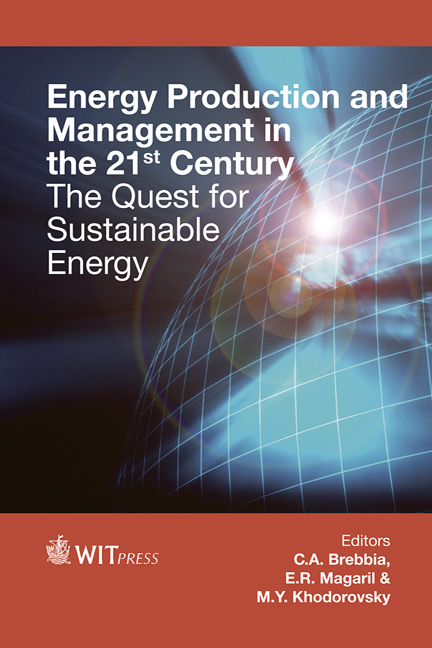Energy And Resource Savings In The Process Of Absorption Drying Of Natural Gas By Glycols
Price
Free (open access)
Transaction
Volume
190
Pages
12
Page Range
867 - 878
Published
2014
Size
280 kb
Paper DOI
10.2495/EQ140812
Copyright
WIT Press
Author(s)
A. A. Ali, M. S. Rogalev & R. Z. Magaril
Abstract
The preparation of natural gas for pipeline transportation using the method of absorption drying by glycols is associated with significant costs of thermal energy required for desorbing water from the saturated solution of glycol, electric energy expenses for pumping the solution between desorber and absorber, a loss of the absorbent within commercial gas due to drop ablation and an increased corrosion rate of equipment due to the chemical aggressiveness of the operating environment. The introduction of surface-active substances into glycol is found to increase the rate of absorption of water from the natural gas and the rate of water evaporation from the saturated solution of the absorbent. Using the nickel salt of synthetic fatty acids in the concentration 20–25 ppm as a surface-active substance leads to a drop down to 10°С in the dew point of the dried gas and to an average twofold rise in the evaporation rate of water from the saturated solution of the absorbent. The presence of a given quantity of the nickel salt of synthetic fatty acids in glycol contributes to the suppression of foam formation of the absorbent on the upper plate of the absorber and reduces the corrosion rate of equipment by five times. As a result it becomes possible to decrease the frequency rate of absorbent circulation in the drying system used for obtaining the dried gas with the required properties. This automatically results in a significant decrease in energy consumption. The reductions in permanent losses of the absorbent and the corrosion rate of equipment improve savings on energy resources. Keywords: absorption, desorption, process of mass transfer, surfactants, energy saving, resource saving.
Keywords
absorption, desorption, process of mass transfer, surfactants,energy saving, resource saving.





